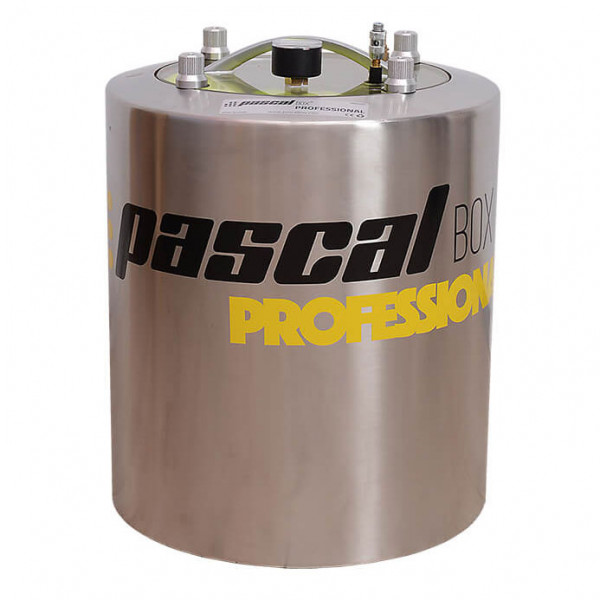The balls that work best with Pascal Box are the highest quality balls.
The only balls that do not work well are balls that have very dense rubber. And these are usually the ones that are advertised as training or high durability.
This is because the normal balls we use for play get their performance from the combined work derived from the elasticity of the rubber and the internal pressure.
Normal quality balls have a rubber with a certain density and elasticity and a high internal pressure (approximately like a car tire).
Training balls have a much denser and harder rubber because it gets its performance, its rebound, in the rubber and not in the internal pressure. That is why they last longer, because the rebound does not depend on the pressure but on the rubber, but of course, this makes them harder, heavier and less tactile for the player...that is why they are for training and are not used in matches and never in championships.
In short, any quality ball, designed for the game, of whatever make and model, will work perfectly with Pascal Box.
The training balls, with a denser rubber (does not allow air to pass through) are not suitable.
Now you can invest in your favourite ball regardless of the cost because you will get the most out of it throughout its real life.
Pascal Box can recover any quality ball (see point on balls and rubber density) that is in good condition regardless of its age.
The ball is flattened when we hit it (video of racquet hitting and ball flattening) causing it to expel the compressed air inside and thus losing its internal pressure and rebound. If the ball does not have the proper pressure it will not resist or recover from the blows causing these cracks in the rubber. The ball can no longer recover. That is why it is important to always have the balls with the right pressure. If you inflate them and keep them at the correct pressure, they can last more than 50 games. So our recommendation is that you invest in the best quality balls and inflate them with the Pascal Box from day one. This way we guarantee that you will get the most out of them throughout their useful life. Perfect bounce, every time.
If the balls are new (one or two games in a few days) 6-8 at night is enough.
Some players take the Pascal Box with them in their racquet bag and others inflate them when they get home at the end of the day. If you inflate them at night, they will be perfect the next morning.
If they have lost a lot of pressure then they will need more time, it will depend on their state of pressure.
If the pressure gauge does not show a zero value when the system has no pressure, it means that it is out of calibration.
And this only happens if it has received a sharp blow that has caused the needle to jump.
Normally it does not affect the operation beyond the displacement of the scale. This means that the new zero pressure level is where the indicator has been left.
This is totally normal. The pressure gauge indicator may drop a couple of millimeters for a couple of reasons:
1. If the temperature has dropped and therefore the air inside the Pascal Box is compressed indicating lower pressure.
2. If you have introduced balls that had already been in the box for a couple of games or three and, therefore, had already lost a significant amount of air and internal pressure. The balls, on regaining pressure have received a significant amount of air from inside the Pascal Box and consequently the indicator shows this in the form of pressure reduction. So much air has passed from inside the Pascal Box to the inside of the ball that the pressure gauge shows it dropping those two millimeters.
You can contact us any time at 03 9021 2225 or at [email protected]




















